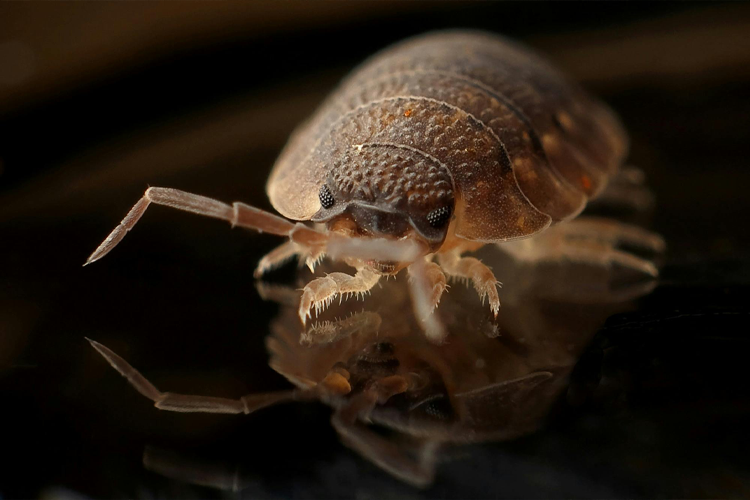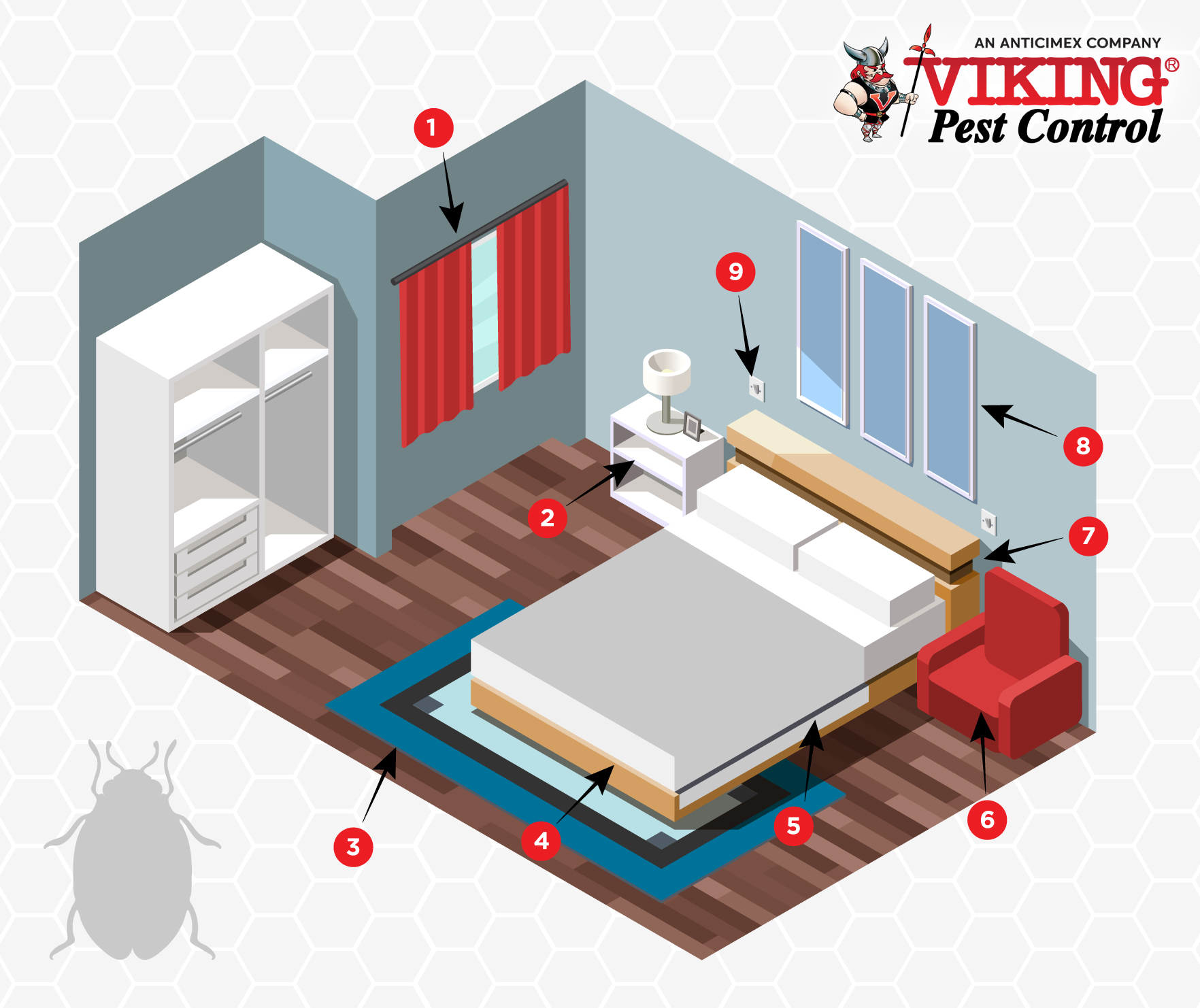Top Kings Cincinnati Bug Control Services: Pest Control Expert Proficiency
Top Kings Cincinnati Bug Control Services: Pest Control Expert Proficiency
Blog Article
A Failure of the Different Sorts Of Parasite Control Solutions
In the world of pest control, a plethora of techniques exist to address and battle the existence of undesirable creatures. From the traditional use chemical pesticides to a lot more innovative organic control solutions, each technique provides unique advantages and restrictions. As we browse with the varied landscape of pest control options, understanding the ins and outs of each method ends up being extremely important in identifying one of the most effective strategy. Stay tuned as we check out the nuanced globe of pest control methods and uncover how each type plays an one-of-a-kind role in securing our settings.
Chemical Pesticides
Chemical pesticides are typically utilized in pest control to efficiently get rid of a wide variety of pests and various other parasites. These chemicals function by targeting the nerve system of the parasites, interrupting their regular features, and inevitably bring about their death. Using chemical pesticides has actually been a staple in the parasite control sector for years because of their effectiveness and quick results.

Nevertheless, it is necessary to utilize chemical pesticides with care due to their prospective harmful impacts on the setting and non-target species. Incorrect application or overuse of these chemicals can lead to contamination, injury to advantageous bugs, and resistance growth in pest populations. It is critical to follow safety guidelines and guidelines when making use of chemical pesticides for parasite control.
Biological Control Methods
Considering the potential ecological influences and threats connected with chemical pesticides, organic control techniques offer a more lasting strategy to handling bug populations. Biological control entails using natural enemies, such as microorganisms, parasites, and killers, to reduce insect populations. This approach is typically much more targeted, influencing just the details parasite varieties while lessening damage to beneficial pests, people, and the environment.

Once developed, all-natural adversaries can assist manage pest populations continuously without the need for duplicated applications of chemicals. Furthermore, biological control is frequently more cost-effective and can aid lower chemical resistance in insect populations over time.

Mechanical Insect Control
Mechanical pest control entails the physical manipulation or elimination of insects to handle their populations successfully. This method is commonly employed in combination with other bug control strategies for detailed parasite administration. One usual example of mechanical bug control is using traps to record pests or rodents. These traps can be established up in tactical places where parasites are understood to dwell, assisting to lower their numbers.
One more mechanical technique is using barriers such as screens, fencings, or webs to obstruct parasites from getting in specific areas. By physically stopping bugs from accessing an area, the chance of problems or damages can be significantly decreased. Additionally, hands-on methods like handpicking insects off structures or plants can be effective for smaller-scale infestations.
While mechanical insect control methods can be labor-intensive, they offer a non-chemical alternative that can be lasting and eco pleasant. By targeting insects directly, mechanical control techniques can help maintain parasite populaces in check without relying upon pesticides.
All-natural Remedies
Utilizing all-natural solutions for bug control uses a lasting and eco-friendly strategy to managing pest populations without turning to chemical treatments. Natural remedies include utilizing compounds acquired from plants, minerals, or other naturally happening resources to hinder or remove insects. As an example, planting specific herbs like basil, mint, or lavender around your building can drive away bugs as a result of their strong fragrances. Diatomaceous planet, a powder made from fossilized algae, can be used to combat parasites like ants, cockroaches, and bed pests by dehydrating their exoskeletons.
Furthermore, essential oils such as tea tree oil or neem oil have insecticidal buildings that can effectively manage parasites while being safe for the environment. One more all-natural solution is introducing useful bugs like ladybugs or hoping mantises to your yard to take advantage of dangerous parasites. By incorporating these natural services right into bug monitoring strategies, individuals can decrease their reliance on synthetic chemicals and promote a much healthier, a lot more well balanced ecological community.
Integrated Pest Management
Integrated Pest Management (IPM) is an extensive technique that integrates different methods to successfully regulate pest populaces while decreasing threats to human wellness and the atmosphere. IPM includes the combination of several insect control methods such as biological control, habitat adjustment, alteration of social methods, and making use of resistant crop selections. By making use of a mix of these methods, IPM aims to reduce dependence on chemical pesticides, which can have adverse effects on environments and human health and wellness.
One internet key aspect of IPM is the focus on avoidance. By executing measures to avoid parasite invasions before they occur, such as keeping appropriate sanitation and securing entrance points, the demand for reactive pest control actions is lessened. Monitoring and normal assessments play a vital role in IPM, permitting early detection of bug issues and punctual intervention.
Verdict
Finally, the various kinds of insect control remedies use a variety of choices for effectively taking care of insect problems. Chemical pesticides supply quick elimination but might have ecological dangers. Organic control methods utilize all-natural predators to manage parasites. Mechanical insect control entails physical barriers or traps. All-natural remedies use safe alternatives. Integrated Bug Management integrates numerous strategies for an alternative strategy to pest control. Each method has its own advantages and drawbacks, and selecting the most suitable option relies on the particular bug trouble available.
Chemical pop over to this web-site chemicals are typically utilized in pest control to properly get rid of a vast array of pests and other pests.Mechanical insect control involves the physical control or removal of insects to manage their populations effectively (Kings exterminator cincinnati).Utilizing all-natural solutions for bug control uses a sustainable and eco-friendly approach to taking care of parasite populations without resorting to chemical interventions.Integrated Parasite Monitoring (IPM) is a detailed method that combines numerous methods to efficiently control pest populaces while lessening risks to human wellness and the atmosphere.In conclusion, the numerous types of pest control remedies provide a range of alternatives for have a peek at this site efficiently taking care of bug infestations
Report this page